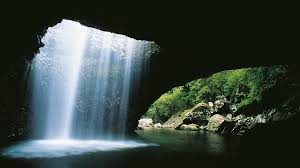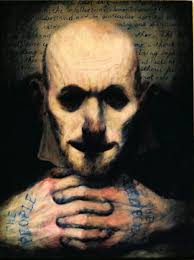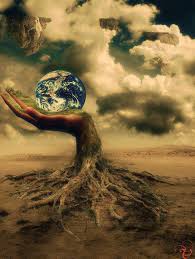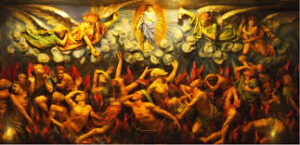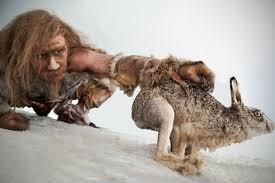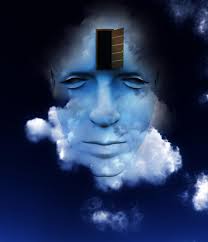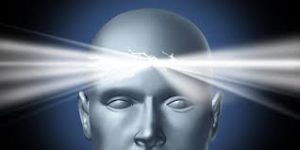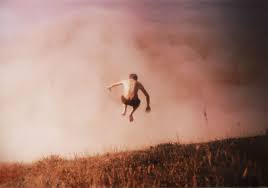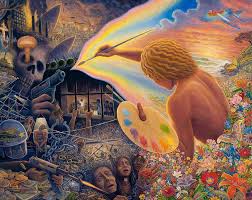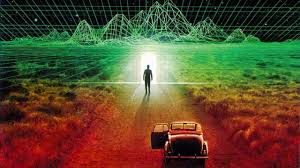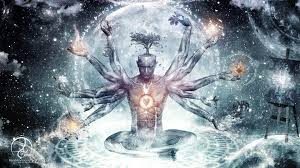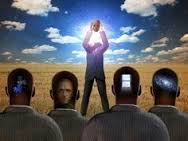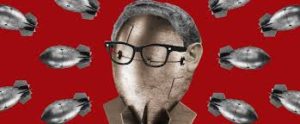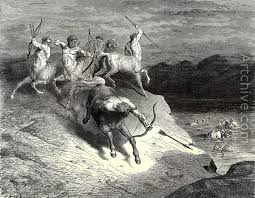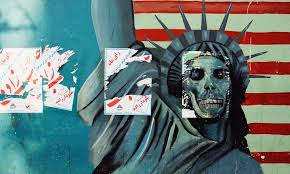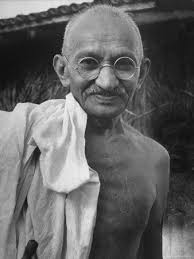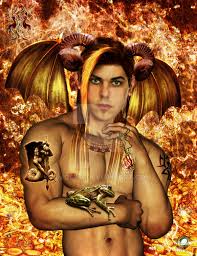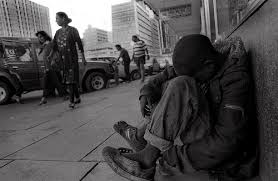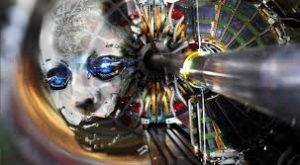The building blocks of matter can be called Conscious units or units of consciousness. They form physical matter as it exists in our understanding and experience. Units of consciousness also form other kinds of matter that we do not perceive.
Conscious units can also operate as “particles” or as “waves.” Whichever way they operate, they are aware of their own existences. When conscious units operate as particles, in our terms, they build up a continuity in time. They take on the characteristics of particularity. They identify themselves by the establishment of specific boundaries.
They take certain forms, then, when they operate as particles, and experience their reality from “the center of” unique specifications. They become in our terms individual.
When conscious units operate as waves, however, they do not set up any boundaries about their own self-awareness — and when operating as waves conscious units can indeed be in more than one place at one time.
I understand that this is somewhat difficult material to comprehend. However, in its purest form a unit of consciousness can be in all places at the same time. It becomes beside the point, then, to say that when it operates as a wave a unit of consciousness is precognitive, or clairvoyant, since it has the capacity to be in all places and all times simultaneously.
Those units of consciousness are the building blocks for the physical material of our body, for the trees and rocks, the oceans, the continents, and the very manifestation of space itself as we understand it.
These conscious units can operate as separate entities, as identities, or they can flow together in a vast, harmonious wave of activity, as a force. Actually, units of consciousness operate in both ways all of the time. No identity, once “formed,” is ever annihilated, for its existence is indelibly a part of “the entire wave of consciousness to which it belongs.”
Each “particalized” unit, however, rides the continual thrust set up by fields of consciousness, in which wave and particle both belong. Each particalized unit of consciousness contains within it inherently the knowledge of all other such particles — for at other levels, again, the units are operating as waves. Basically the units move faster than light, slowing down, in our terms, to form matter. These units can be considered, again, as entities or as forces, and they can operate as either. Metaphysically, they can be thought of as the point at which All That Is acts to form our world — the immediate contact of a never-ending creative inspiration, coming into mental focus, the metamorphosis of certainly divine origin that brings the physical world into existence from the greater reality of divine fact. Scientifically, again, the units can be thought of as building blocks of matter. Ethically, the conscious units represent the spectacular foundations of the world in value fulfillment, for each unit of consciousness is related to each other, each participating in the entire gestalt of mortal experience. And we will see how this applies to our attitudes toward species, and man’s and woman’s relationship with other conscious entities and the planet we share with them.
In the beginning conscious units, then, units of consciousness, existing within a divine psychological gestalt, endowed with the unimaginable creativity of that sublime identity, began themselves to create, to explore, and to fulfill those innate values by which they were characterized. Operating both as waves and particles, directed in part by their own creative restlessness, and directed in part by the unquenchable creativity of All That Is, they embarked upon the project that brought time and space and our entire universe into being. They were the first entities, then.
I want us to try and imagine a situation in which there exists a psychological force that includes within its capabilities the ability to act simultaneously on the most microscopic and the most macroscopic levels; that can form within itself a million separate inviolate unique identities, and that can still operate as a part of those identities, and as a larger unit that is their source — in which case it is a wave from which the particles emerge. That description fits our units of consciousness.
They built our world from the inside out. As physical creatures, they focused upon what we think of as physical identities: separate, individual differences, endowing each physical consciousness with its own original variations and creative potentials, its own opportunity for completely original experience, and a viewpoint or platform from which to participate in reality — one that at that level could not be experienced in the same way by any other individual. This is the privileged, always new, private and immediate, direct experience of any individual of any species, or of any degree, as it encounters the objective universe.
At other levels, while each individuality is maintained, it rides the wavelike formations of consciousness. It is everywhere at once, and the units of consciousness that make up our cells know the positions of all other such units, both in time and in space.
In the beginning, then, these units operated both as identities or particles, and as waves. The main concentration was not yet physical in our terms. What we now think of as the dream state was the waking one, for it was still the recognized form of purposeful activity, creativity, and power. The dream state continues to be a connective between the two realities, and as a species we literally learned to walk by first being sleepwalkers. We walked in our sleep. We dreamed our languages. We spoke in our dreams and later wrote down the alphabets — and our knowledge and our intellect have always been fired, sharpened, propelled by the great inner reality from which our minds emerged.
Physical matter by itself could never produce consciousness. One mind alone could not come into being from chance alone; one thought could not leap from an infinite number or nerve ends, if matter itself was not initially alive with consciousness, packed with the intent to be. A man or woman who believes life has little meaning quickly leaves life — and a meaningless existence could never produce life. Nor was the universe created for one species alone, by a God who is simply a supervision of the same species — as willful and destructive as man or woman at his or her worst.
Instead, we have an inner dimension of activity, a vast field of multidimensional creativity, a Creator that becomes a portion of each of its creations, and yet a Creator that is greater than the sum of its parts: a Creator that can know itself as a mouse in a field, or as the field, or as the continent upon which the field rests, or as the planet that holds the continent, or as the universe that holds the world — a force that is whole yet divisible, that is one and the inconceivably many, a force that is eternal and mortal at once, a force that plunges headlong into its own creativity, forming the seasons and experiencing them as well, glorifying in individuation, and yet always aware of the great unity that is within and behind and through all experiences of individuality: a force from which each moment pasts and future flow out in every conceivable direction.
In our terms of time, however, we will speak of a beginning, and in that beginning it was early man’s and woman’s dreams that allowed him or her to cope with physical reality. The dream world was his or her original learning ground. In times of drought he or she would dream of the location of water. In times of famine he or she would dream of the location of food. That is, his or her dreaming allowed him or her to clairvoyantly view the body of land. He or she would not waste time in the trail-and-error procedures that we now take for granted. In dreams his or her consciousness operated as a wave.
In those early times all species shared their dreams in a way that is now quite unconscious for our kind, so that in dreams man and woman inquired of the animals also — long before he or she learned to follow the animal tracks, for example. Where is there food or water? What is the lay of the land? Man and woman explored the planet because his/her dreams told him that the land was there.
People were not nearly as isolated as it now appears, for in their dreams early men and women communicated their various locations, the symbols of their cultures and understanding, the nature of their arts. All of the inventions that we often think now happened quite by chance — the discovery of anything from the first tool to the importance of fire, or the coming of the Iron Age or whatever — all of that inventiveness was the result of the inspiration and communication of the dream world. Man and woman dreamed his or her world and then created it, and the units of consciousness first dreamed man or woman and all of the other species that we know.
There is a point here that I want to emphasize before we go too far, and it is this: The dream world is not an aimless, non-logical, unintellectual field of activity. It is only that our own perspective closes out much of its vast reality, for the dreaming intellect can put our computers to shame. I am not, therefore, putting the intellectual capacities in the background — but I am saying that they emerge as we know them because of the dreaming self’s uninterrupted use of the full power of the united intellect and intuitions.
The intellectual abilities as we know them cannot compare to those greater capacities that are a part of our own inner reality.
It makes little difference whether we watch the news or not — but it makes all the difference in the world what we think of world events.
The perspective from which we watch events is vital, and it it true that communication now brings to the conscious mind a far greater barrage than before. But it is also a barrage that makes man and woman see his and her activities, and even with the growth of the new nationalism in the Third World, those nations begin from a new perspective, in which the eyes of the world are indeed upon them.
Our country faces the results of its own policies — its greed as well as its good intent, but it is out in the open in a new way. The world will be seen as one, but there may be changes in the overall tax assessments along the way, as those who have not paid much, pay more.
The results of fanaticism are also out in the open. Never before, in our terms, has the private person been able to see a picture of the mass world in such a way, or been forced to identify with the policies of his or her government. That in itself is a creative achievement, and means that man or woman is not closing his or her eyes to the inequities of his or her world.
Units of consciousness do help form different kinds of physical realities. There are many dimensions that are as physical, so to speak, as our own world, but if we are not focused in them we would not at all be aware of their existence, but perceive only empty space.
Nothing in the universe is ever lost, or misled, or wasted, so the energy of our own thoughts, while they are still our own thoughts, helps to form the natural attributes of physical realities that we do not perceive. So our own world formed by units of consciousness. Its natural elements are the glistening remnants of other units of consciousness that we do not see.
According to Albert Einstein, no material particle in our universe can be accelerated from rest to quite the speed of light, which is about 186,000 miles per second in a vacuum. Supposed faster-than-light particles are thought to be possible within the context of Einstein’s special theory of relativity.









